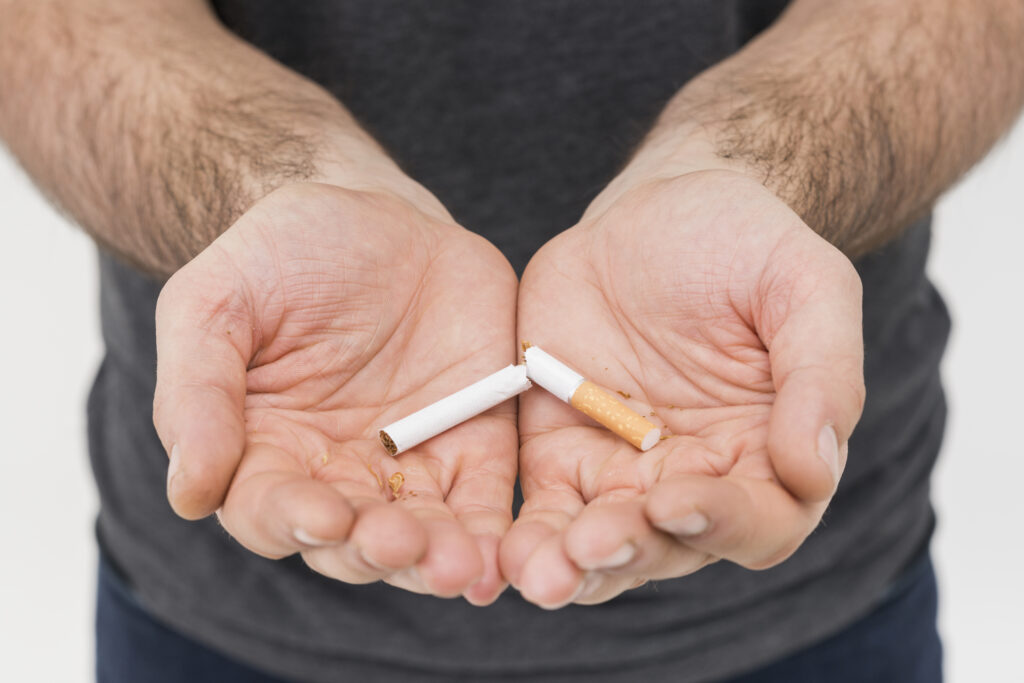If you’re a smoker, you would obviously know that every drag you take brings lung cancer closer to you. After all, it is the leading cause of lung cancer. But what if you don’t smoke? First of all, kudos to you for being a non-smoker in these times when every second person around us smokes.
Secondly, if you don’t smoke you are avoiding a number of health issues and are leading a relatively longer life. But it doesn’t mean you can’t get lung cancer. You’re still at some risk because of other factors that affect your probability of getting lung cancer. So, what are the other factors that increase your risk of getting lung cancer?
We’ll discuss that at length here in this blog post.
Genetic mutations
Mutations are a common cause of different types of cancers, including lung cancers. Genetic mutations are changes in DNA which make up the genes, leading to the development of cancer. These mutations cause healthy cells to become cancerous. However, what causes these mutations is still unknown.
The silver lining is lung cancer is treatable if it is diagnosed in the early stages. So, be vigilant on the lookout for symptoms like a persistent cough that doesn’t get better with medicines and time. Additionally, look out for blood in phlegm, shortness of breath, weight loss and loss of strength and energy as these are also some signs and symptoms of lung cancer.
Family history
Even if you don’t smoke but have someone in your family who did have lung cancer, you’re still at risk of developing it – especially if it is a first-degree family member and you have direct blood relation with them.
It’s best to undergo screening tests frequently to diagnose lung cancer in the early stages. Lung cancer in the early stages is easily treatable. It’s the lung cancer detected in the later stages that is risky and even fatal.
Exposure to pollutants
If you live in highly polluted metropolitan cities in India, your exposure to pollutants is severely high. Every minute you breathe in a polluted environment increases your risk of developing lung cancer tenfold.
Remember, air pollution comprises minute harmful particles which can get trapped in the lungs. Accumulation of these particles can damage the cells in the lungs, which can lead to inflammation.
Inflammation can damage the DNA and alter the way cells divide, causing replication and turning healthy cells into cancerous ones.
Exposure to radioactive gases
Radioactive gases can be lethal. Lung cancer caused by exposure to radioactive chemicals is the second leading cause of death, among non-smokers. Your exposure to radioactive chemicals may increase if you live near construction sites or factories.
Please note that radon, a radioactive gas, forms naturally from rock and soil. You won’t know you are exposed to it as it can be smelled. While low levels of the same are present outdoors, it’s an issue if there are high levels inside. Radon can enter your home from the ground through cracks and spaces.
Ensure that you check radon levels in your home. You can take the help of a professional in thisregard.
Passive smoking
Think you’re safe from lung cancer just because you don’t smoke while your friend standing beside you does? Hate to break the bubble, but you are mistaken. Passive smoking, i.e. indirect smoking also exposes you to harmful particles.
When a person breathes out, they release harmful chemicals, carcinogens and toxic substances in the air which can be inhaled by you if you are standing close. Passive smoking is a significant cause of the development of lung cancer in people who never smoked.
Closing thoughts: So how am I better off without smoking?
It’s a common misconception that lung cancer only affects smokers. While it’s true that non-smokers are at risk too, the risk is relatively less. You must not forget or undermine that smoking is the leading cause of lung cancer, accounting for around 85-90% of cases. On the other hand, only 10-15% of lung cancer patients are those who never smoked.
90% v/s 10% risk, you tell us which is worse, being a smoker or non-smoker?
Not to mention, smoking doesn’t only cause lung cancer, but a variety of diseases including stroke and heart attacks.
Hence, if you’re proud of being smoke-free, don’t let your guard down.
SAY NO TO SMOKING. It’s too late to start but never too late to quit.





